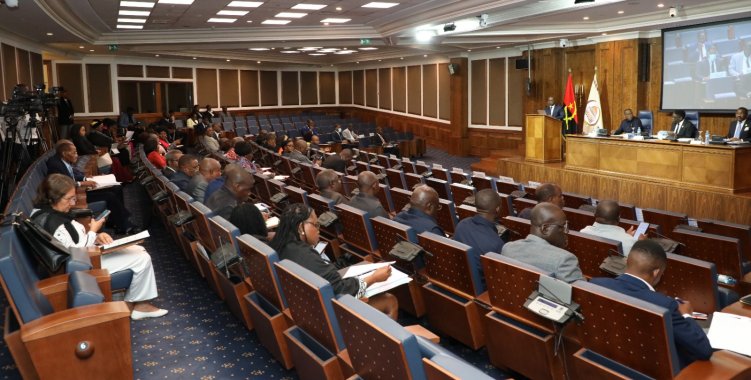"The National Assembly, through the specialized working committees responsible for the matter, approved, this Monday, in detail, the joint opinion reports (RPC) regarding the proposals and the bill to amend the Organic Law on General Elections, the Law on Unofficial Voter Registration, and the Organic Law of the National Electoral Commission, thus concluding the detailed review of these legislation," the parliament said in a statement that VerAngola had access to.
The three reports were approved unanimously. According to the statement, the RPC on the Organic Law on General Elections passed with 45 votes in favor, none against, and no abstentions.
"Among the changes accepted, we highlight editorial adjustments, the removal of articles, clarification of deadlines, rules for election observers, increased transparency in the list drawing process, and the introduction of provisions to ensure greater clarity in the polling station minutes. The possibility of using voter registration cards in the 2027 general elections was also maintained," the note reads.
The RPC for the proposed amendment to the Official Voter Registration Law was also approved unanimously with 47 votes.
"The approved amendments focus on the precision of concepts and administrative procedures, with the aim of strengthening the effectiveness and security of the registration process," the note reads.
"The proposed amendment to the Organic Law on the Organization and Functioning of the National Electoral Council (CNE) was also unanimously approved, with 45 votes in favor. Among the main changes, it is worth highlighting the possibility of up to three accredited national election observers in the CNE plenary sessions and counting centers, the mandatory public selection process for admission to the body, and the structural and procedural reorganization of the institution," the parliament stated.
The review and voting on the legislative initiatives was coordinated by the Committee on Constitutional and Legal Affairs (1st CTE) and "were attended by the Minister of Territorial Administration, Dionísio da Fonseca, representing the head of the Executive branch, who expressed agreement with the amendments introduced."
In the end, the minister, who also participated as a proponent, highlighted that the "Executive is satisfied with the consensual solutions", having praised the "deputies' commitment to discussing the legislation, which he considered satisfactory".







